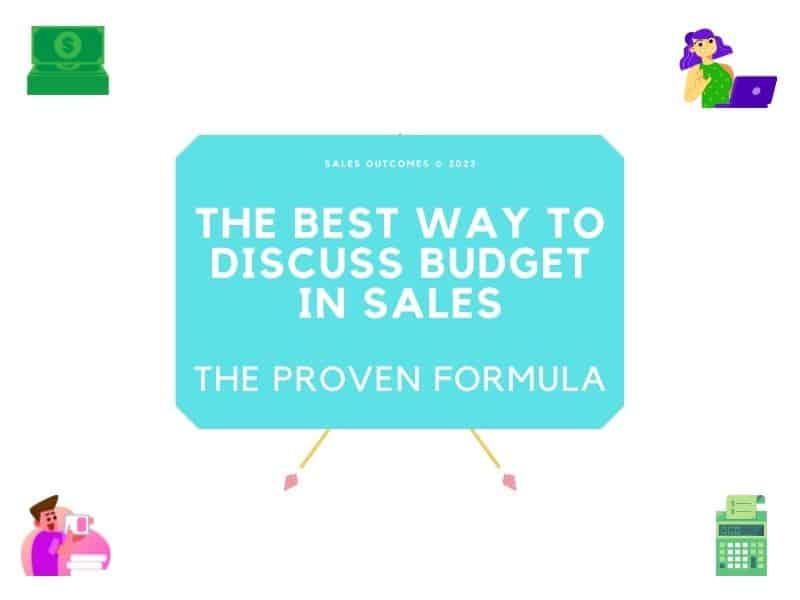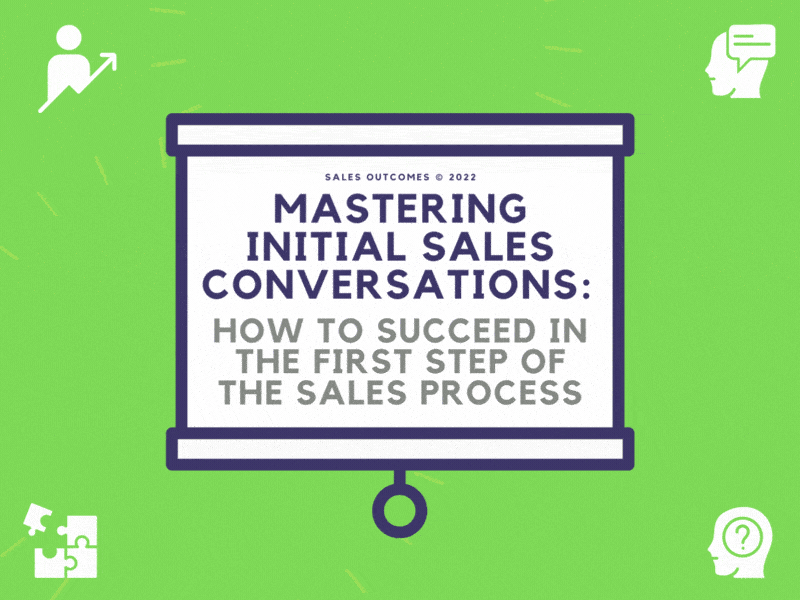The Best Way To Discuss Budget in Sales: The Proven Formula

This post is the 200th edition of 2-Bullet Tuesday!!!
Thank you for being a valued reader and sharing the content you like with friends and colleagues.
One of the most critical steps in the sales process is discussing the budget or price with potential clients.
Many salespeople struggle with this conversation, but a proven way makes it easier for the salesperson and the potential client.
This blog post explores the best way to discuss a budget or pricing while shortening the sales cycle and establishing credibility with your potential client.
Have Budget or Price Conversations Earlier in the Sales Process
Salespeople often avoid discussing price until they’ve had the opportunity to build the value proposition. Avoiding these discussions can backfire, especially when a customer is contemplating a material change in running the business if your solution is selected.
Salespeople shouldn’t wait until they’ve proposed to have the price conversation. Understanding a potential client’s budget, or testing your solution’s price range, helps to set mutual expectations and is a checkpoint to determine if moving forward with the buying and selling process makes sense.
I think you’ll agree that winning a deal is almost impossible if a client can’t afford your solution. So, the sooner the budget or price conversation happens, the better. I’m not suggesting you need to have the price conversation during the first meeting. However, the budget conversation should happen before deploying resources or developing the proposal.
Won’t a Client Resist Revealing Their Budget?
If a client doesn’t want to reveal their budget, it’s a red flag for the sales process.
Revealing a budget does not indicate what a client is willing to pay. It’s not uncommon when a prospect says, “I’m not sure of my budget.” The salesperson then crafts a detailed proposal for the potential client to respond with, “Well, I was thinking it would be half that cost.” The sales team then walks away after wasting hours on a proposal that never had a chance to succeed.
If a client refuses to discuss the budget, I let them know that it’s essential so I can ensure that we can deliver the appropriate solution for them. I stress that our objective is to present the best solution for their company. If I can’t work within their budget, we can look at alternative options for them (usually referring them to someone else).
The Best Way To Discuss Budget or Pricing
The way a salesperson asks about the budget is essential. Here’s the proven approach:
1 – Help the potential client understand that “testing” for budget or pricing has mutual value – It saves time for both parties and helps ensure that the client will get a proposal that addresses their pain points and desired outcomes. Try saying something like this – “At this stage of our discussions, we’ve found that having a high-level conversation about budget or price range for the contemplated solution benefits both of our companies.”
2 – Take the lead on discussing numbers by sharing a range estimate of other clients’ budgets for similar solutions. Try saying something like this – “Solutions that address the type of challenges you are experiencing run between 10 to 20 thousand dollars a month. Is this range close to what you have budgeted or expected?”
The answer will allow a salesperson to gauge how educated the buyer may be and understand what it will cost to make a change.
It makes no sense to consume time and resources only to discover that the prospect’s expectations don’t match the reality of what they are asking.
The budget discussion can determine if your client is financially well-suited for your solution, and it shapes the project’s scope. Asking for it saves you the headache of unnecessary appointments, positions you as a professional, and helps you win the trust of your potential client.
